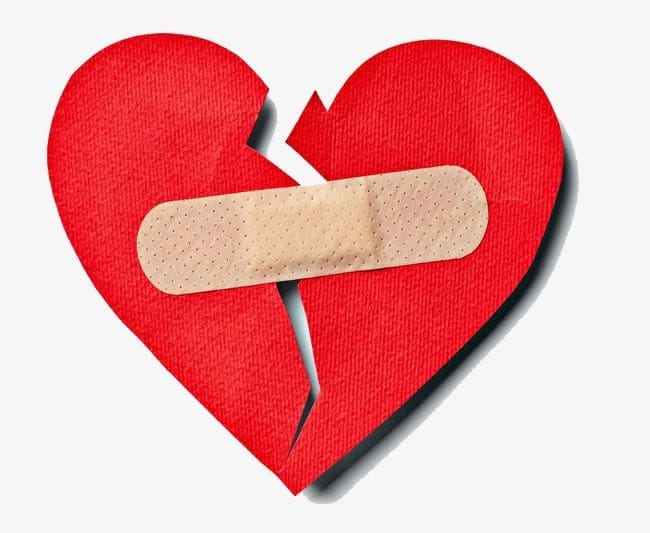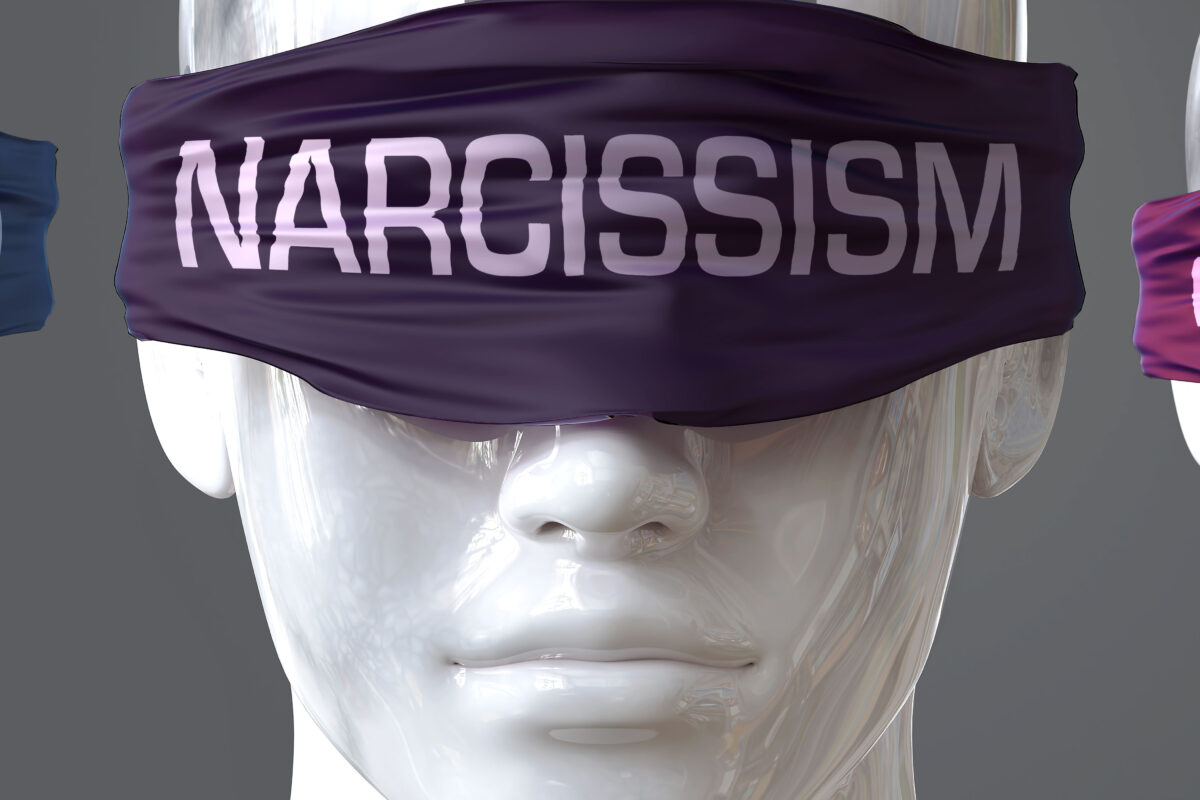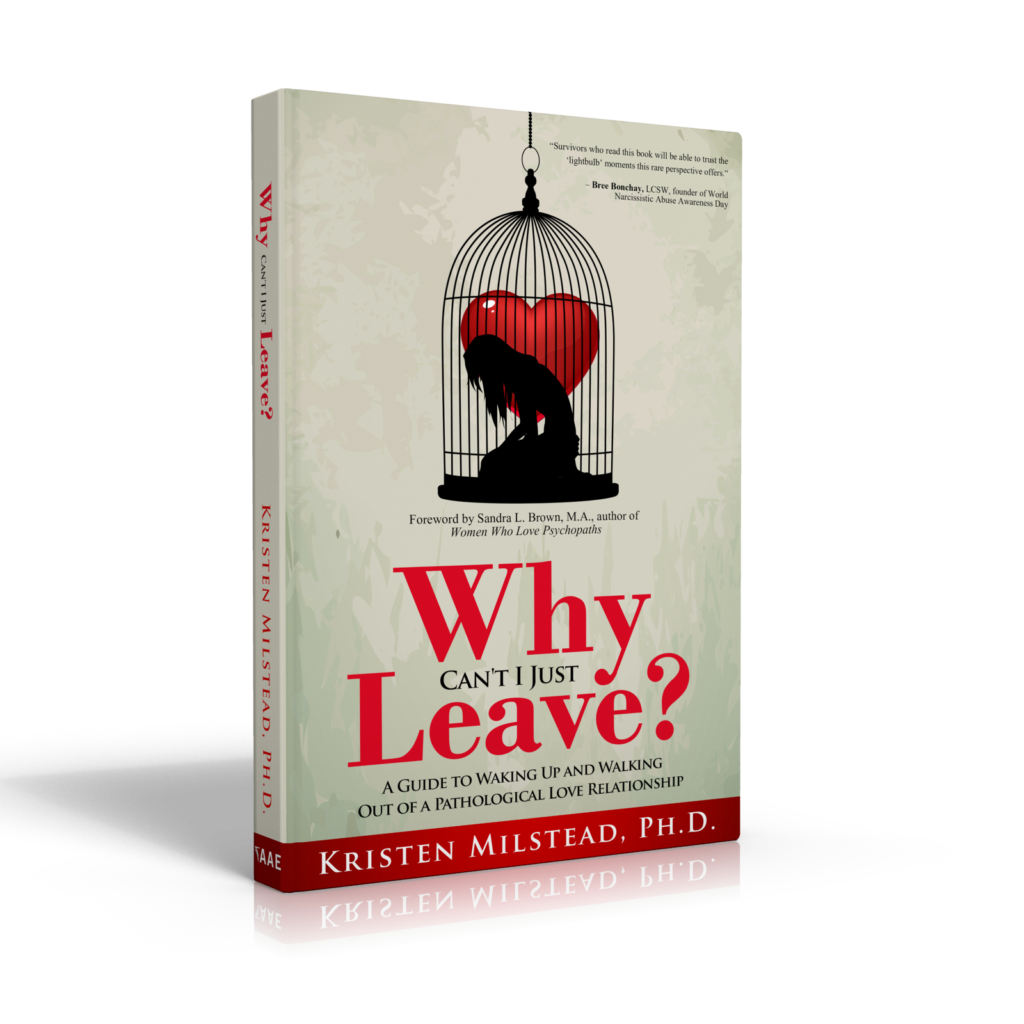Healing from narcissistic abuse is a process, and the journey to recovery has many stages.
We can only begin to heal when the realizations we have about our narcissistic ex-partner lead us to an enlightened view of the relationship.
Yet, we can get stuck before we have these realizations if we do the wrong things. Below are seven things we should try not to do so we don’t get stuck on the way to a full recovery.

What to Avoid as You’re Healing from Narcissistic Abuse
It’s tempting to fall into the traps below. Sometimes not doing them can even be painful.
As you read, question whether you’re doing any of these things, how they’ve served you, and whether changing them might help you move forward in your healing journey.
1. Avoid Hanging Around People Who Don’t Support You.
People who haven’t been through a pathological love relationship with a narcissist or psychopath don’t understand what we’ve experienced. That’s okay–as long as they can still support us as we recover from one.
Supportive people should be empathetic to what you’re going through. That means they shouldn’t judge you or project what they think they would do if they were going through the pain (we know they wouldn’t).
They shouldn’t give you advice unless you ask for it or tell you what to do, or make claims about who they think you are or why they believe you feel how you’re feeling.
Supportive people listen to how you’re feeling. They may not always be available to listen 24/7 because they’re human. However, giving you the benefit of the doubt and accepting you and the situation for what it is should be the bare minimum.
You don’t have to convince anyone to love and accept you. If they’re actively saying harmful things that undermine you, get away from them.
2. Avoid Suppressing Your Emotions.
The roller coaster of emotions is one of the most painful things we will likely ever experience. It’s tempting to do anything we can to try to shut off the spigot.
Doing so will only prolong the pain, however.
When we sit with that pain, the intensity does begin to fade over time. I don’t know the biology behind why that happens, but it’s as if by allowing those emotions in, we desensitize ourselves to them.
Eventually, new ones start to take their place. It may seem difficult to believe, but we may begin to feel amusement at the ridiculous things our partners did.
3. Avoid Beating Yourself Up If You Responded to a Hoover.
Narcissists are great at pushing our buttons. They learned how to control us and conditioned us to respond when they pulled out various tricks.
They have a habit of popping up weeks, months, or even years later with a hoover attempt, and we may get caught off guard. [Read What is Hoovering? 23 Narcissist Hoovering Tactics to Watch Out For]
Maybe the narcissist pulled you into a web of conversation and you don’t remember how you got involved in it. If you found yourself in a place you didn’t want to be, recognize that this is another game they play.
Either end the game as soon as you can or, if you can’t end it, at least understand what happened and go easy on yourself.
One day, there will be nothing they say to which you will care to respond. When you truly realize you have all the power, they will stop contacting you because they don’t want to interact with people who don’t hand over their power.
4. Avoid Blaming Yourself for What Happened.
Speaking of going easy on yourself, don’t get caught in the trap of blaming yourself for things that happened while you were in the relationship.
There are all kinds of blame others may want to heap on you, and you will start to heap it on yourself.
“I should have known when I first met them.” (Why?)
“I should have recognized the red flags.” (You sure about that? More on this below)
“I should have left sooner.” (There are about two dozen reasons you didn’t, and none of them say anything about you or what kind of person you are)
“I shouldn’t have responded to them the ways that I did.” (The volume of things we could dump into this “shoulda” statement is so large, it practically means we’d have to be superhuman–or a psychopath)
We can keep having thoughts like those, but without understanding the psychological and social factors acting on us, we can’t see the full picture.
The guilt and shame we heap on ourselves can never bring us to the closure that will lead us to recovery.
5. Avoid Assuming You’re Codependent (or, if You Are Codependent, Avoid Attributing the Situational Dynamics of the Relationship to Your Codependency).
The idea that you’re codependent assumes that there were qualities about you before starting the relationship that made you attractive to the narcissist and made the narcissist attractive to you.
This idea implies something inherent in you that may have led you to enter the relationship and stay in it.
Of course, some people do re-enact past patterns in their relationships.
Yet, there is a crucial missing piece in how we understand the relationship if we haven’t taken situational dynamics into account.
What do situational dynamics mean? It means we haven’t fully considered the factors outside of ourselves that affected our behavior in the relationship.
Rhonda Freeman, neuropsychologist, says, “Narcissistic abuse is about the pathology of the narcissist damaging the well-being of their partner. No one will do great in these relationships – not even the securely attached. Why? Because narcissists have a disorder of impaired social neuro-networks of their brain. That is the key to the problem. The survivor is reacting to the narcissist’s limited emotional system.”
What are situational factors?
An example of a situational factor is how psychological manipulation can coerce a person to violate their morals and values. This coercion can occur in a lot of different circumstances. Most people tend to react the same way, regardless of their personality or background.
Other essential factors include isolation and our level of conscientiousness. What was happening in our lives at the time we met our partners is also a crucial factor. The chemical trauma bond we develop to the narcissist is also significant.
Taking these factors into account demonstrates that there was a change in us over time. Through our interactions with the narcissist, we become more compliant and dependent.
If codependency were the only factor necessary to explain either the narcissist’s attraction to us or why we could not leave, there would have been no need for the narcissist to deceive us.
He or she also would not need to psychologically manipulate us and break us down to make us compliant. Our codependent behavior would have been enough to bind us to the relationship.
Our compliance made us valuable to the narcissist, and the narcissist induced that compliance in us gradually.
Without understanding how the relationship changed us, authentic healing from narcissistic abuse is more difficult to achieve.
6. Avoid Forgetting to Grieve.
It wasn’t just the relationship you lost. The narcissist put you in a position where you were easy to exploit. He or she took pieces of you under false pretenses.
You didn’t ask for this. All you wanted to do–all you tried to do–was love someone.
Yet the narcissist stole things from you. You lost those pieces of yourself, and you’ll never get them back. It’s unfair. It’s tragic. Nothing about this makes any sense.
As part of not suppressing your emotions, you’ll have to grieve, but one of the things you’ll grieve for is you.
It’s okay to grieve. You’ll have to so you can become the “you” you’re now meant to become.
7. Avoid Letting the Relationship Steal Your Core Values From You.
Sometimes people write to me and say, “Because of this relationship, I’ll never be the person I used to be.”
Yes, again, the relationship stole something from us. It forced us to change when we didn’t want to.
It’s true that our experience forever changes us because we will never again see the world as a place where people will do the right thing if given a chance.
We have seen that some people don’t care that they cause others pain and even enjoy the pain they inflict on others. It’s an ugly truth to face.
However, we can maintain our core values by reconciling this knowledge with the fact that most people are not like this.
It is an act of both resilience and defiance to maintain our trust in humanity despite the abuse we suffered.
Going back to the way we used to be is not possible because we are not who we used to be. Yet we also cannot stay stuck where we are.
Instead of compartmentalizing who we used to be from who we are now, we can integrate our new knowledge with our core values to become our best selves.
Growing into our best selves means developing the strength to move forward into a future that truly leaves the relationship’s pain with the narcissist in the past where it belongs.
Source
Freeman, Rhonda. n.d. “3 Possibilities to Consider Before Assuming You’re Codependent.” Neuroinstincts. Retrieved at https://neuroinstincts.com/codependency-narcissistic-abuse-the-brain/
Want more? Please take a moment to sign up to get all future articles delivered straight to your inbox.
If you liked this article about healing from narcissistic abuse, please share it!
Other articles like this one:
- How to Get Over a Narcissist: You Absolutely Must Do This
- What a Narcissist Says About Break-Ups: They Never Let You Go
- Five Things to Help You Move On After Going No-Contact
- 5 Questions For Your Narcissistic Abuse Recovery Program
- Coercive Control: The Domination of a Narcissist
- Why Linking Narcissistic Abuse and Codependency is Dangerous





